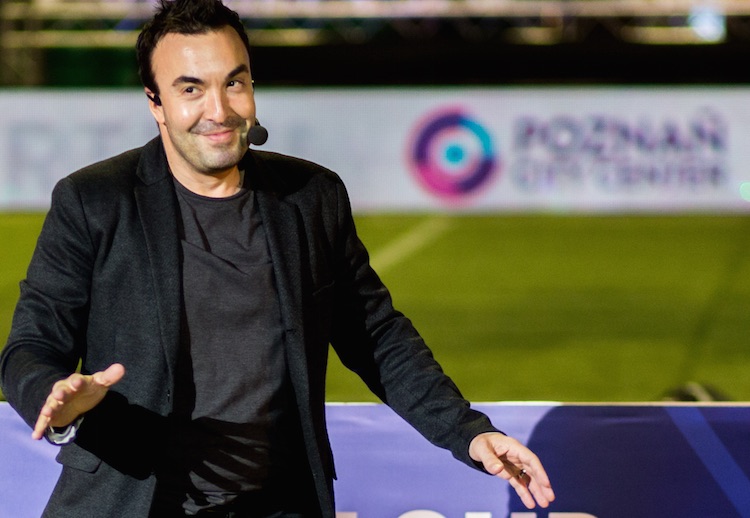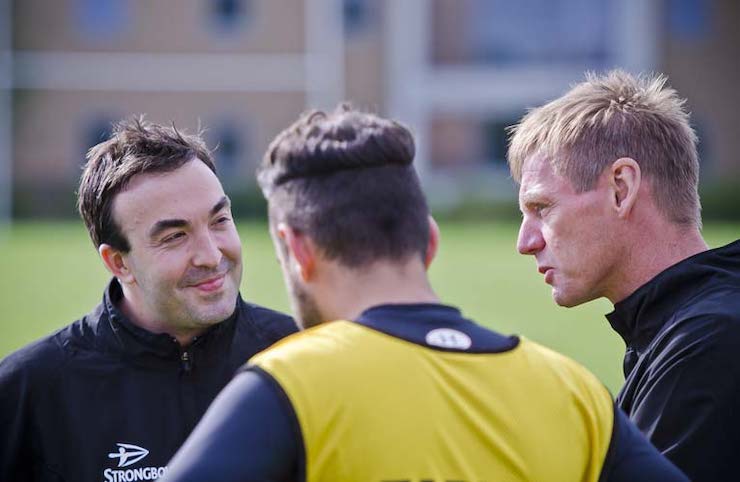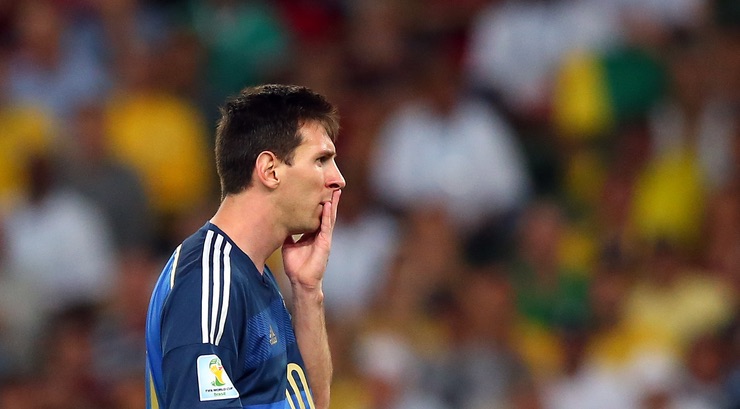What Can Players, Coaches, and Parents Learn from the Top Sports Psychologist Who Works With the Pros? A lot.
Imagine Eliminating the Plague of Inconsistency . . .
“Learn to think, train and play like the best soccer players in the world, from the man who works with them,” is the tagline on Abrahams’ site. From someone else, it might sound arrogant. From Dan Abrahams, it is humble and simply direct. Abrahams is the global sports psychologist who works with pros on both sides of the Atlantic. His goal? To have players harness the mental skills to tackle challenges and respond consistently in peak performance mode.

It has been my pleasure to publish Dan Abrahams’ column for years. His approach is unique and is driven by his desire to positively impact players and provide tools which can be used immediately to enhance their performance. I have known Dan for years and it is always an honor to speak with him, and always an exchange that is both delightful and enlightening.
Want to see Dan in action? A dynamic presenter at the upcoming United Soccer Coaches Convention in January 2019, his featured sessions are always packed – so come early.
Abrahams focuses on Instant Outcomes, Long-Term Success and the Next Level for Footballers
In response to emails from our readers, I wanted to go on record and ask Dan a few questions.
SoccerToday: Diane Scavuzzo’s Conversation with Dan Abrahams
Diane Scavuzzo: The articles you write for SoccerToday are really phenomenal, but readers have questions. Our readers want to know what you do with professional soccer players?
Dan Abrahams: Right. So, my work really is two-fold. It is principally Performance Psychology with Wellbeing and Welfare Support.
Performance psychology is, in part, about match-day mindset so it is about helping professional players high-perform consistently under pressure.
I help players have the best possible match-day mindset and that’s about performing consistently under pressure.
It is also having a mastery mindset.
Diane Scavuzzo: What is a Mastery Mindset?
Dan Abrahams: So having a Mastery Mindset is being passionate about learning, improving, developing, and progressing your game.
Diane Scavuzzo: What is the Wellbeing Side?
Dan Abrahams: High performance consistently under pressure is tough if you want to be an elite athlete, especially when you don’t have a wellbeing strategy running through your life.
The wellbeing side is, as the name suggests, supports players from a wellbeing perspective as well.

Diane Scavuzzo: Some coaches have an old-fashioned mindset that believes elite performance athletes are born. They’re supposed to be tough. They aren’t supposed to need help being mentally strong. What do you say to that?
Dan Abrahams: I actually think that is an interesting stance. I’ve actually stopped using the word mental strength to determine mental toughness so much now. Because — in my experience over the last 20 years working with athletes from all sports — the reality is players are mentally tough, or they wouldn’t be players.
However, they’re human beings and they’re vulnerable, like we all are.
We all have moments of vulnerability, and a high-performance environment taps into that vulnerability. What athletes need is the mental skill.
I think mental skill is the best term for demonstrating the right attitude every single day.
To be able to high-perform consistently under pressure. To be able to perform under pressure they need mental skill. You’re not necessarily born with mental skill — having the tools, techniques and the strategy and being able to apply them under pressure.
I wouldn’t necessarily use the word toughness. I would use the term mental skill, And we’re not really born with mental skill. It is a learned skill and this doesn’t mean that the people who are highly competent at it can’t become even better at it.
So, if we go back to the high-performance piece and the wellbeing piece, from a high-performance perspective …
I don’t think anybody is born with the capacity to high-perform consistently under pressure.
So learning simple tools and techniques to become mentally skillful in those acute performance moments is really, really crucial.

We’re all human beings. Even the biggest professional players. We’re all subject to this sort of rollercoaster of mood, motivation, confidence, and focus. We all can benefit from wellbeing strategies to help us function at our peak levels. I think assuming that people are born with this skill is probably a little bit presumptuous.
Diane Scavuzzo: How many professional athletes or soccer players do you believe you’ve worked with?
Dan Abrahams: Oh, wow. There’s a question. Hundreds and hundreds. When you add up all the teams and all the clubs ….
Diane Scavuzzo: What clubs are you working with now or have worked with?
 Dan Abrahams: I’m currently with Bournemouth, I’ve worked with Derby County, I’ve worked with QPR, Fulham, West Ham.
Dan Abrahams: I’m currently with Bournemouth, I’ve worked with Derby County, I’ve worked with QPR, Fulham, West Ham.
Over the past 15 years, I’ve probably worked with individuals from every one of the 92 professional league clubs in England’s top four divisions.
Diane Scavuzzo: After working with so many different professionals, is there one common thread that most professionals share? Or one common challenge?
Dan Abrahams: Yes, I think the common problem comes back to that mental skills.
In the development of a player, what tends to be ignored is how a player manages him or herself on the pitch. For example:
- How does a player manage to deal with distraction?
- How do you manage emotions?
- How do you train effectively on a day-by-day basis?
- And, how do you effectively compete when they’re not 100 percent confident? And, this you have to do a lot of the time.
Players are not always confident. Perhaps when you’re mentally fatigued or physically fatigued, how do you deal with that?
I blame the psychological community more than the soccer community … I think that we, in psychology, need to be better at delivering our stuff in understandable ways, in ways that are enticing for players and coaches.
We really need to translate our methodologies in a digestible way for coaches.
Diane Scavuzzo: What are the ages of players that you work with?
Dan Abrahams: Usually professional players but I also work with youth soccer players but I’m not too keen to work individually with players who are under the age of 14.
Diane Scavuzzo: What do you think is the biggest mistake a coach makes working with a teen?
Dan Abrahams: I think the narrative tends to revolve around outcomes and around performance, which is understandable. Coaches will work on the technical side, but they won’t help develop players to have mental mindset within a game.
This is lacking and needs to be introduced into the landscape.
I’m very in favor of deconstructing the classic coaching model —technical, tactical, physical, mental, psychological, and social into a model.
And this is what I’ve done at my Soccer Academy, which is the psych-social part drives the technical, tactical, and physical components. Rather than being inter-meshed, actually the psych-social drive the technical, tactical, and physical.
When coaches sit down and work out the activities they want to deliver to their players, they should have that psych-social driving the tech, tactical, and physical areas. Coaches should understand that the psych-social is always happening during their training sessions. Players are constantly perceiving what’s going on around them. They’re constantly perceiving what the coach has been saying and communicating.
And what coaches don’t always realize is that the young players carry their activities home with them.
Players replay the communication with the coach in their mind.
They replay how much they enjoyed it, how much stretch there was within those activities and how much support there was.
Related Articles: Dan Abrahams on SoccerToday
The social piece is more the communication. It’s more than the environment and the culture that a coach sets up. It’s how he or she greets people, how they act towards his or her players.

Diane Scavuzzo: When you talk about a coach always thinking about their technical training and skills development through a psych-social lens, what does it really mean?
Dan Abrahams: That the coaches understand the impact of how they are communicating their players. That coaching simply isn’t sharing the knowledge in his or her head.
Coaching is about helping players learn.
The learning happens. The social piece asking ‘How do my players learn? How could I help them to learn?’
Good coaching is not just telling players what to do. Effective coaching, from a social standpoint — from a learning standpoint — is letting the activity help players learn.
Diane Scavuzzo: Can you give me an example?
Dan Abrahams: It could be asking questions. When you passed that ball to Johnny over there, what were you looking at? Why did you make that decision? What was it that you were seeing that made you make the decision to pass to Johnny? So when you ask questions like that, players learn at a deeper, more semantic, more meaningful level. Rather than just instructing the player.
 Another Great READ: DAN ABRAHAMS: WHAT SOCCER PARENTS NEED TO KNOW
Another Great READ: DAN ABRAHAMS: WHAT SOCCER PARENTS NEED TO KNOW





